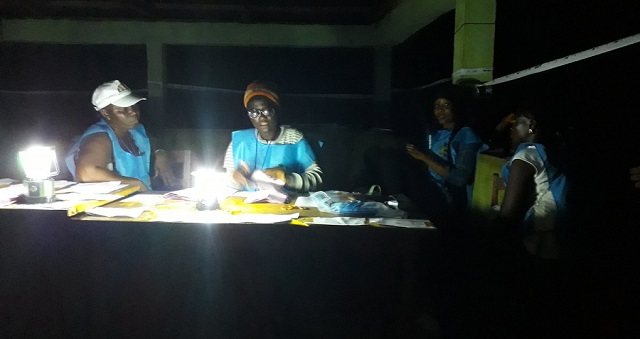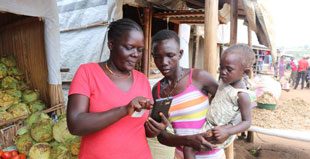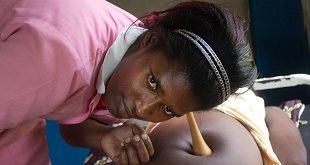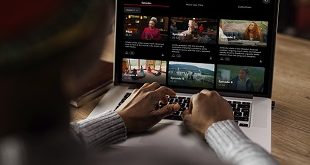
Freetown, Sierra Leone | AFP | Counting began on Wednesday in Sierra Leone following a general election, as the residence of an opposition leader was raided by police.
Polls closed at 5 pm as expected for the West African nation’s 3.1 million voters, who were choosing a new president, parliament and local councils.
Partial tallies are expected within 48 hours and complete results within two weeks.
President Ernest Bai Koroma, who cannot run again after two consecutive five-year terms, has anointed former foreign minister Samura Kamara as his successor for the ruling All Peoples Congress (APC).
Around 6pm the residence where Sierra Leone People’s Party (SLPP) leader Julius Maada Bio was staying was surrounded by police, who were initially refused entry, they told AFP.
After an intervention by former Ghanaian president and election observer John Dramani Mahama, police were allowed to enter, they said, refusing to comment on the purpose of the raid.
“He was able to persuade them to allow us access to the building,” said Mohamed Kamara, head of the police criminal investigation.
“We came in with a warrant,” he added, saying officers observed material on several laptops before dispersing by 8pm.
SLPP spokesman Lahai Lawrence Leema said it was an “act of intimidation” aimed at “rigging elections”.
The APC and SLPP have dominated Sierra Leone’s politics since independence in 1961, but third parties are hoping to make their mark after mounting charismatic campaigns based on the two parties’ shortcomings.
A statement released by civil society groups mentioned scuffles in a rural area that were quickly brought under control.
An AFP journalist also witnessed riot police being deployed on the streets of the capital Freetown, with Chief Superintendent Mohamed Bangura confirming two arrests after scuffles involving rival parties.
The export-dependent economy of the mineral-rich but impoverished country is in a dire state following the 2014-16 Ebola crisis and a commodity price slump that has driven away foreign investors.
A presidential runoff is likely, according to experts, as the threshold to win outright in the first round is 55 percent.
– Regional divide –
Sierra Leone, battered by a horrific 1991-2002 civil war, is sharply divided along regional lines that overlap with ethnicity.
The APC broadly relies on the Temne and Limba people in its northern strongholds, while the SLPP is more popular in the south with the Mende ethnic group.
The National Grand Coalition (NGC), headed by former UN diplomat Kandeh Yumkella, is challenging the two-party system by appealing to young and better-educated urban voters deemed less likely to vote along regional and ethnic lines.
Its communications chief told AFP it had reported some irregularities to the National Election Commission (NEC).
“In general, voting seems to be going on in an orderly manner. But there are complaints from the opposition that the ruling party’s partisans are stuffing ballots in some of their strongholds, particularly Tonkolili,” said Sierra Leonean political analyst and author Lansana Gberie.
The NEC admitted in a statement that ballot papers were not printed correctly for one mayoral election, but said the vote had otherwise gone smoothly.
Arthur Taillu, a retired teacher, said it could prove difficult to dislodge the APC government.
“The present government has got a lot of clout. They have got a lot of money. And in very poor countries like Sierra Leone, money talks,” Taillu told AFP after casting his vote in Freetown.
The current government is accused of misusing funds meant to rebuild the country’s health system after Ebola, and of failing to address the fallout from a mudslide in August that killed hundreds.
– Chinese influence –
Outgoing president Koroma’s increasing reliance on China for infrastructure projects, including a new airport and adjoining toll road, have also raised concerns that Beijing is seeking to keep the APC in power.
“Chinese companies and political officials have bled into the current electoral cycle, shaping public discourse, as well as long-term economic and political decisions,” noted the Institute for Governance Reform (IGR), a Freetown-based think tank in a recent report.
Voter freebies and funding for campaign materials could “potentially influence the voting public” in the APC’s favour, it added.
Observers from the African Union, Economic Community of West African States (ECOWAS), the European Union and the Commonwealth oversaw voting.
 The Independent Uganda: You get the Truth we Pay the Price
The Independent Uganda: You get the Truth we Pay the Price



